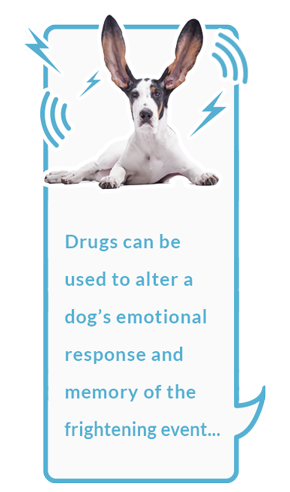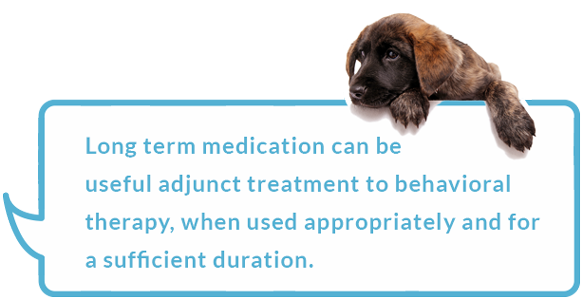TreatmentPage 10 of 13
Drugs
While there are currently no approved drugs for the management of noise phobias, veterinary behaviorists frequently recommend the following medications for dogs with noise phobias. Before prescribing, veterinarians should review Plumb’s Therapeutics Brief for complete information on the following drug’s side effects, contraindications and drug interactions. DO NOT use acepromazine- it can increase reactivity to sound and may be particularly inappropriate for anxiety induced by sounds.

Short term or event associated medications
- Best if given on an as needed basis – potent for panic-type responses, although the duration of the effect may only be a couple hours but it may last longer depending on the pet.
- Ideally given 1 hour prior to event.
- Drugs can be used to alter a dog’s emotional response and memory of the frightening event which can make the dog more manageable and help prevent the problem from getting worse.
- Benzodiazepines
- Provides anxiolytic effects but relatively less sedation.
- Alprazolam 0.02-0.05 mg/kg orally 2-4 times daily as needed, should be given 1 hour prior to event.
- Practitioners should have owners give a trial dose to determine response prior to use during a noise event.
- Some dogs experience a paradoxical response including causing excitement or exacerbating aggressive behaviors.
- Serotonin antagonist/reuptake inhibitor
- Provides anxiolytic effects and relatively more sedation than alprazolam.
- Trazodone 3-5 mg/kg orally prior to the event but may used twice daily to start, may increase to 3 times daily if needed. May also increase dose, if needed.
- May cause sedation.

